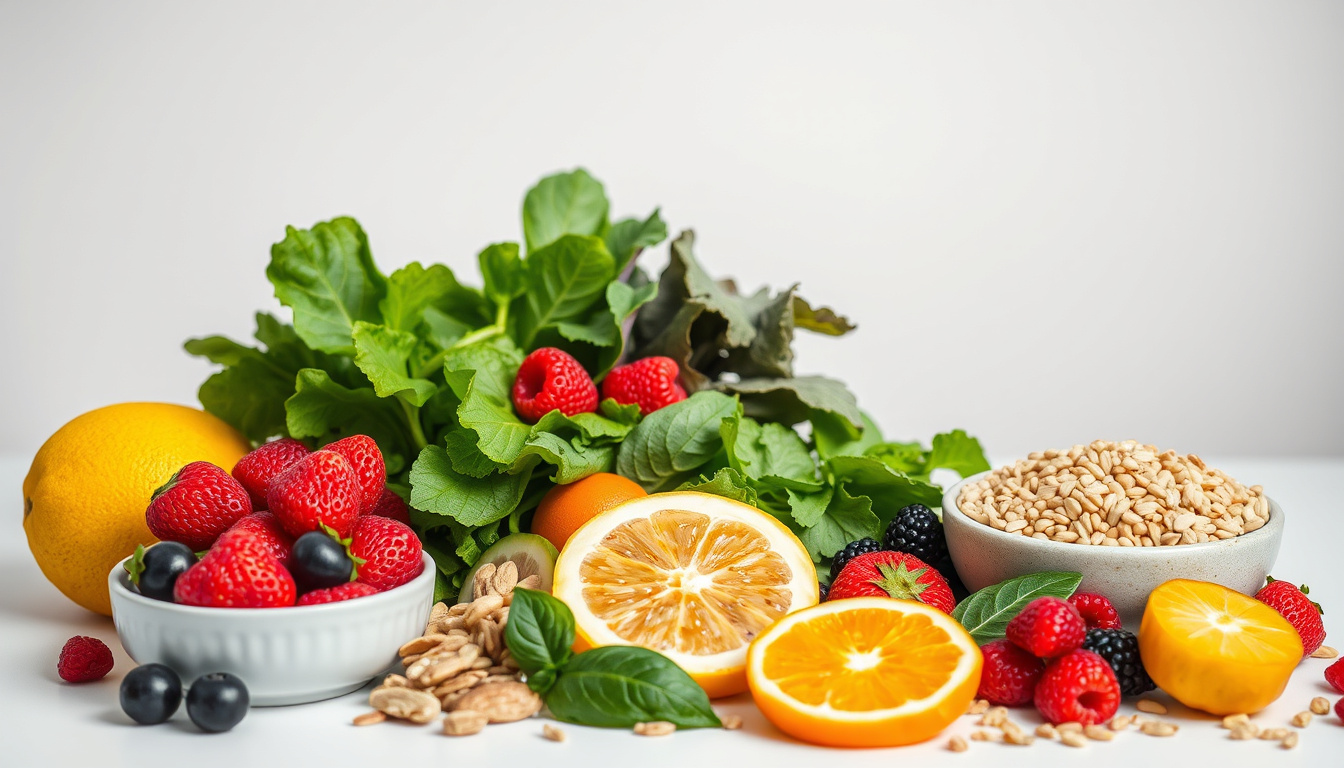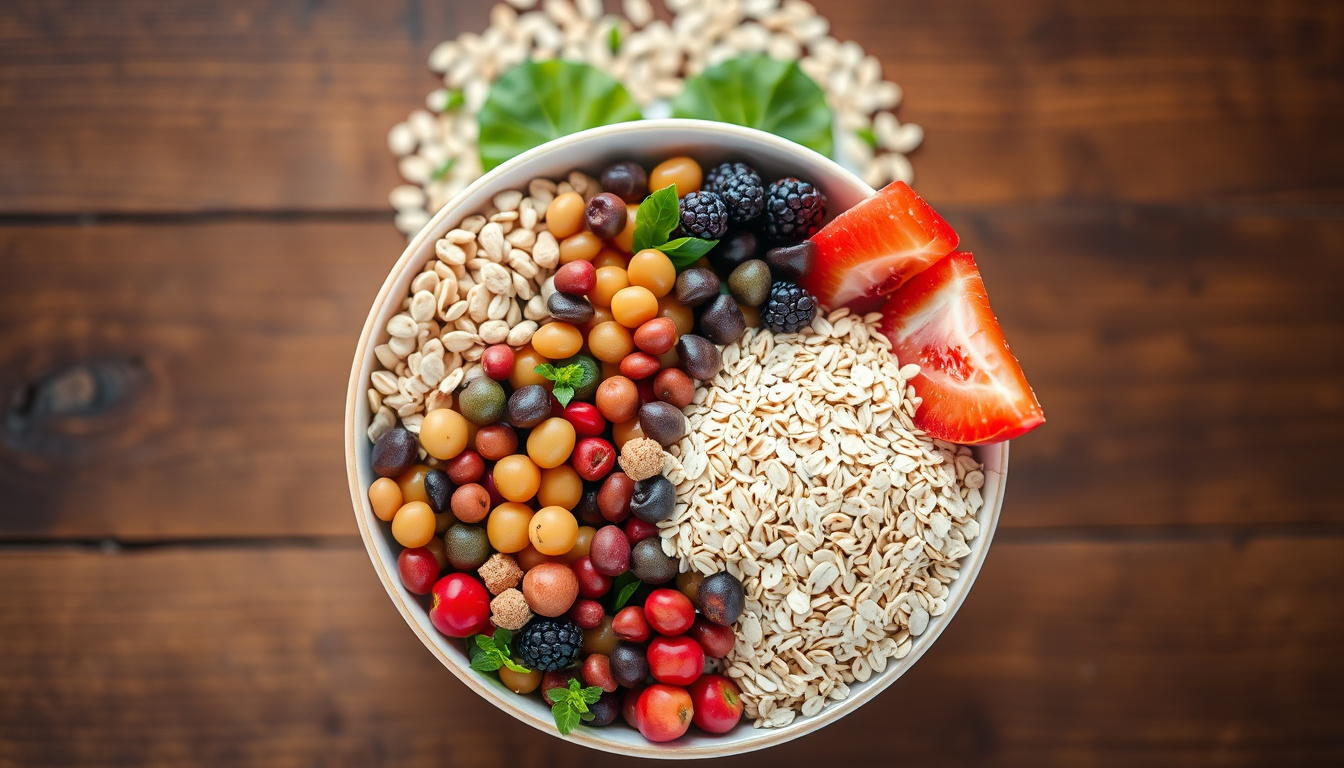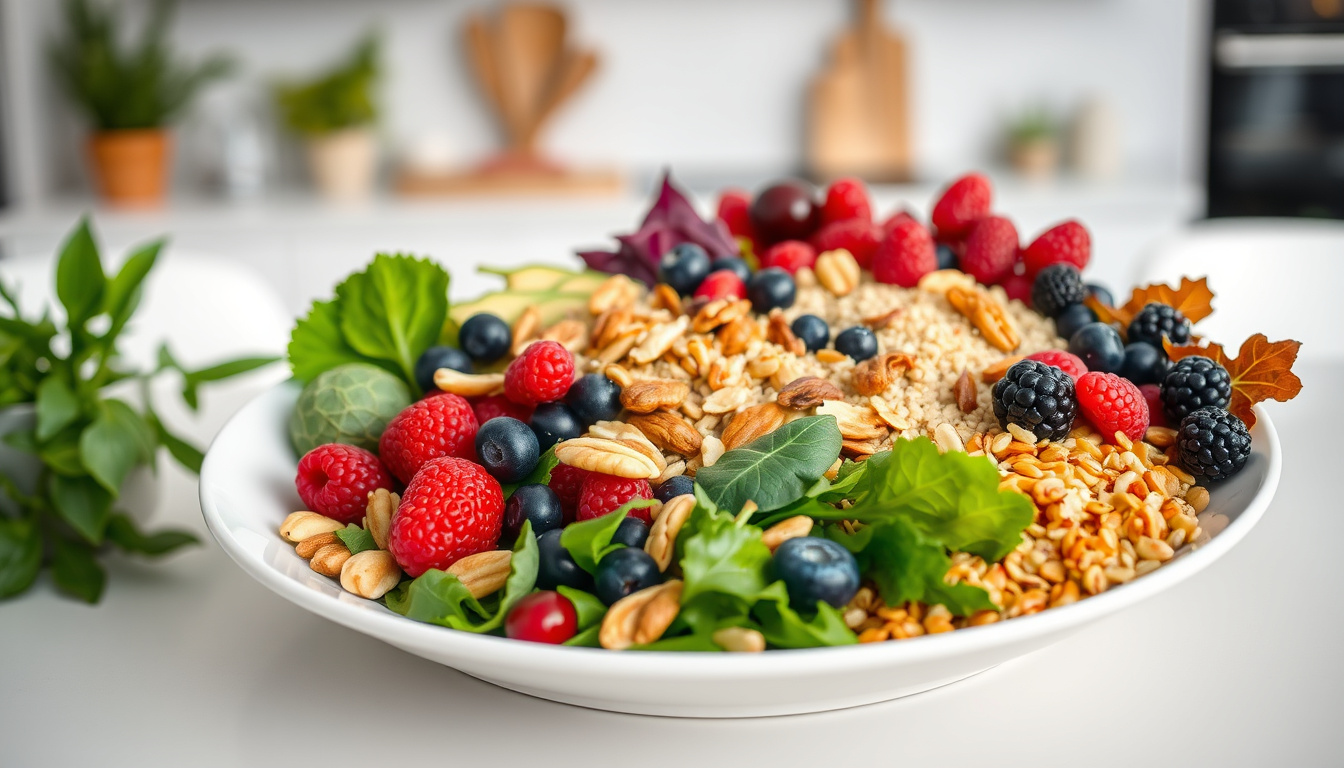Cholesterol plays a pivotal role in our overall health, acting as a building block for cells and hormones. However, not all cholesterol is created equal. While our bodies produce some cholesterol, it’s crucial to monitor the levels of low-density lipoprotein (LDL) often referred to as ‘bad’ cholesterol, which can lead to heart disease when elevated. Understanding how to effectively manage cholesterol through diet is essential for maintaining a healthy heart. In this article, we will explore the top 10 best foods to reduce cholesterol naturally, along with insights on how they can positively impact your cardiovascular health.

Key Takeaways
- Cholesterol plays a critical role in heart health, and managing its levels is vital for preventing heart disease.
- Incorporating fiber-rich foods, such as oats and legumes, can effectively lower cholesterol levels.
- Healthy fats from sources like avocados and olive oil can help improve cholesterol profiles.
- A variety of foods, including nuts, seeds, and fatty fish, are essential for a heart-healthy diet.
- Making small changes to your daily meals can significantly impact your cholesterol and overall health.
Understanding Cholesterol and Its Impact on Heart Health
Cholesterol is a waxy substance found in the cells of your body, essential for producing hormones, Vitamin D, and substances that help digest foods. However, elevated levels of cholesterol can lead to heart disease and other cardiovascular issues. Understanding the impact of cholesterol on heart health is crucial, especially concerning the role of diet. Some of the best foods to reduce cholesterol include oats, fatty fish, nuts, and legumes. Oats contain beta-glucans, which help lower cholesterol, while fatty fish such as salmon and mackerel are rich in omega-3 fatty acids that promote heart health. Incorporating these foods into your daily diet, along with fruits, vegetables, and whole grains, can significantly decrease cholesterol levels and improve overall heart health, making it essential to prioritize dietary choices that nurture your cardiovascular system.
Top 10 Foods That Help Lower Cholesterol Levels
When it comes to managing cholesterol levels, incorporating the best foods to reduce cholesterol into your diet can make a significant difference. Foods rich in soluble fiber, healthy fats, and antioxidants not only boost overall heart health but also help in lowering LDL cholesterol, the ‘bad’ cholesterol. Here, we present the top 10 foods that can effectively contribute to lowering cholesterol levels. First on the list is oats, which are packed with soluble fiber that binds cholesterol in the digestive system. Fatty fish, such as salmon and mackerel, are rich in omega-3 fatty acids, known for their cholesterol-lowering properties. Nuts, particularly almonds and walnuts, are another excellent source of healthy fats and help improve lipid profiles. Additionally, avocados offer heart-healthy monounsaturated fats and fibers that contribute to cholesterol reduction. Beans are another powerhouse; their high fiber content keeps you full and helps lower cholesterol. Olive oil, a staple in the Mediterranean diet, is rich in monounsaturated fats and antioxidants. Fruits like apples, grapes, and strawberries are high in pectin, a type of soluble fiber that can help lower cholesterol. Whole grains beyond oats, such as barley and quinoa, also work to lower cholesterol by boosting fiber intake. Finally, incorporating dark chocolate in moderation can provide antioxidants that benefit heart health. By including these top 10 foods in your meals, you can take a proactive step toward managing your cholesterol and enhancing your overall well-being.
‘Let food be thy medicine and medicine be thy food.’ – Hippocrates

How Fiber-Rich Foods Contribute to Lowering Cholesterol
When it comes to managing cholesterol levels, incorporating fiber-rich foods into your diet is one of the best strategies you can adopt. Fiber aids in lowering bad cholesterol (LDL) by binding to cholesterol in the digestive system, which helps to flush it out before it enters the bloodstream. Some of the best foods to reduce cholesterol include whole grains like oats and barley, legumes such as beans and lentils, and a variety of fruits and vegetables. Avocados, apples, and pears are particularly potent sources of soluble fiber, which is known for its cholesterol-lowering properties. By prioritizing these fiber-rich foods in your daily meals, not only do you enhance your overall heart health, but you also create a delicious and varied eating experience.
The Role of Healthy Fats in Reducing Cholesterol
Incorporating healthy fats into your diet is crucial for managing cholesterol levels, making it essential to know the best foods to reduce cholesterol effectively. These healthy fats, primarily found in foods like avocados, nuts, seeds, and fatty fish, not only help to lower bad LDL cholesterol but also support the increase of good HDL cholesterol. For example, avocados are rich in monounsaturated fats, which can improve heart health when consumed in moderation. Similarly, fatty fish such as salmon and mackerel are loaded with omega-3 fatty acids, known to reduce inflammation and lower triglycerides. By focusing on these nutrient-dense foods, you can create a heart-healthy diet that not only supports cholesterol management but also contributes to overall well-being.

Incorporating These Foods into Your Daily Diet
Incorporating the best foods to reduce cholesterol into your daily diet can significantly impact your heart health. Start by integrating more soluble fiber-rich foods, such as oats, beans, lentils, and fruits like apples and citrus, which help lower LDL cholesterol. Healthy fats found in avocados, olive oil, and fatty fish like salmon and mackerel can also play a vital role in managing cholesterol levels. Additionally, nuts and seeds—especially almonds, walnuts, and chia seeds—are packed with heart-healthy nutrients that can effectively reduce bad cholesterol. By making these foods a regular part of your meals, you not only enhance the flavor of your dishes but also take proactive steps towards a healthier lifestyle.






